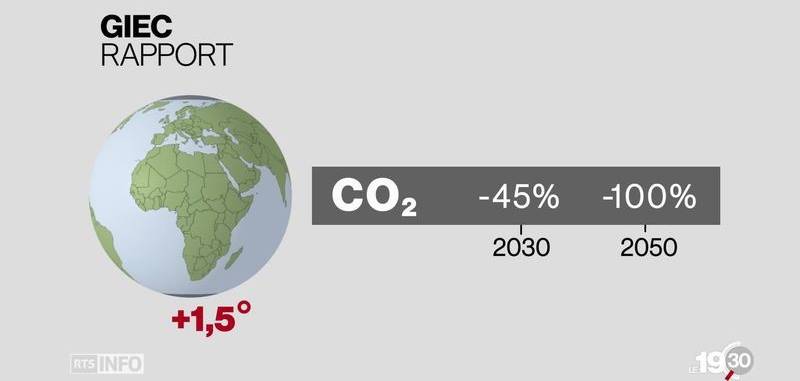
Climate science was and remains unequivocal, now the cliff is closer
There is no good news for the world in the most comprehensive and comprehensive report on climate change ever undertaken; the product of millions of hours of work by thousands of scientists and hundreds of authors. Prior to its publication, representatives of the 195 countries that make up the United Nations Intergovernmental Panel on Climate Change negotiated line-by-line for two weeks over the content of the crucial 40-page summary of its sixth assessment report.
Despite this painstaking process attended by some interested in trying to smooth things over and present reality in a less brutal light, and despite its thoughtful and clinical language, the document still points the way to global catastrophe. The observed increases in greenhouse gases are "unequivocally caused by human activities," he begins. Each of the past four decades has been hotter than the last.
The only thing that has changed since the last assessment was published seven years ago is the increase in greenhouse gas concentrations as the tools available to scientists to map and predict their impact have improved.
Seven takeaways from the IPCC's latest climate science assessment According to the most optimistic of the five scenarios presented in the summary (whether global governments that have so far failed to reduce greenhouse gas emissions? greenhouse despite a global pandemic have sort of set the course for massive reductions in greenhouse gases over the next decade and if they were to then develop and deploy new technologies to remove carbon dioxide from the air and store it underground), the world will likely still exceed 1.5 degrees of warming before 2040. Human-related consequences can be seen in the floods, fires and heat waves currently hitting the northern hemisphere . Even before today, that sad step was taken, one of the report's lead authors, Pep Canadell of CSIRO, told Australian reporters hours before the full report was released. If that best possible outcome were to be achieved, if we were to do better than 1.5 ° to achieve just 1 ° rise, then if we stabilize the climate and slowly see it start to cool, this disordered climate will persist for the rest of the world. century.
In South Australia, this means longer and more frequent droughts and fire seasons. Along the east coast, that means more marine heatwaves like the ones that have so far killed half of the Great Barrier Reef's corals.
The report details possible sudden and catastrophic changes. Massive global deforestation and the collapse of ice caps have dramatic consequences for the ecosystem and humanity. The report says sea level has already risen worldwide more rapidly since 1900 than at any time in the past 3000 years and that even in a stabilized climate these changes will continue for decades to come. thousands of years. But Canadell also says that going beyond the more ambitious 1.5-degree target reached in the talks in Paris doesn't mean we'll fall off the cliff either. Climate change is gradual and every tenth of a degree we can win over future warming is a significant victory.
Likewise, any further delay in action increases the likelihood of dire consequences as more carbon dioxide accumulates in the atmosphere, and makes the job of reducing emissions even more difficult.
When reading this report, it becomes clear that the world can either take appropriate action to tackle climate change or continue to use fossil fuels, especially coal and gas.
One thing is now certain: we will not be able to do both.
Posted on 2021-08-12 13:24








Comments